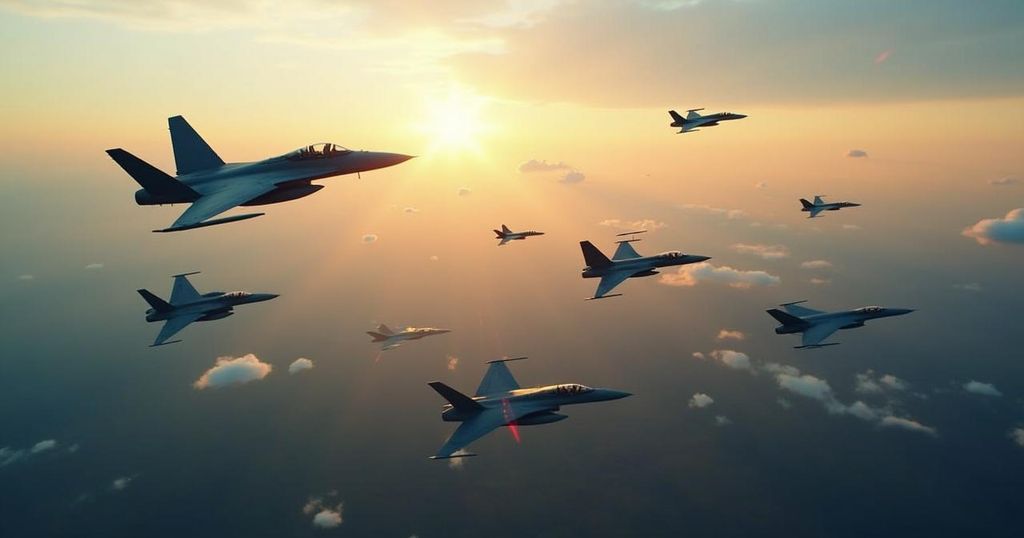Israel has conducted extensive military operations against Iranian-backed forces, including airstrikes in Yemen and Lebanon. The strikes, part of a broader response to escalating violence with these proxies, indicate Israel’s commitment to countering perceived regional threats. Claims of casualties in Lebanon mark a significant escalation in Israeli military engagement within the capital since 2006.
On Sunday, Israel launched a series of military strikes against Iranian-backed forces in multiple regions, expanding its operations in response to escalating violence across the Middle East. The Israeli Defense Forces (IDF) conducted airstrikes in both Lebanon and Yemen, signifying a significantly increased engagement level. Notably, the Israeli air force executed a long-distance strike targeting power plants and shipping facilities in Hodeidah, Yemen, approximately a thousand miles away. In Lebanon, the IDF targeted Hezbollah militants, further escalating tensions in the region. The Popular Front for the Liberation of Palestine claimed that three of its members were killed in an Israeli strike in Beyrouth’s Cola neighborhood, which, if verified, would mark Israel’s first known strike within the Lebanese capital since the conflict with Hezbollah in 2006. As Israel intensifies its military operations against Hamas in Gaza, the activity along its northern border indicates potential preparations for a ground invasion of Lebanon. “The I.D.F. is determined to continue operating at any distance — near or far — against all threats to the citizens of the state of Israel,” stated an official from the Israeli military. This recent escalation follows prior operations by Israeli military and intelligence forces, which included innovative tactics such as transforming communication devices into explosives that resulted in casualties among Hezbollah fighters, alongside a recent airstrike that allegedly killed the long-standing leader of Hezbollah, Hassan Nasrallah.
The ongoing military confrontations illustrate the heightened tensions between Israel and Iran-backed militant groups, particularly Hezbollah and Hamas. These groups have been engaged in sporadic violence against Israel, and the Israeli government’s response has been to broaden its military operations in the region, fearing a larger conflict. The Israeli military’s recent actions reflect a strategy to eliminate perceived threats on multiple fronts, as regional dynamics shift and the potential for a more extensive regional war looms ever larger. The stark measures taken, including long-range airstrikes, underscore the seriousness of the situation and Israel’s commitment to its national security.
In summary, Israel’s recent military operations encompass targeted strikes across multiple fronts in the Middle East, particularly in Lebanon and Yemen, as part of an intensified campaign against Iranian proxies. The potential ramifications of these actions risk further escalation into a broader regional conflict. The IDF’s strategy appears to be focused on neutralizing threats at all distances, emphasizing their ongoing commitment to the protection of Israeli citizens. As the situation develops, close attention must be paid to the consequences of such military engagements. Violent reprisals or further retaliations could reshape the geopolitical landscape of the region significantly.
Original Source: www.nytimes.com







